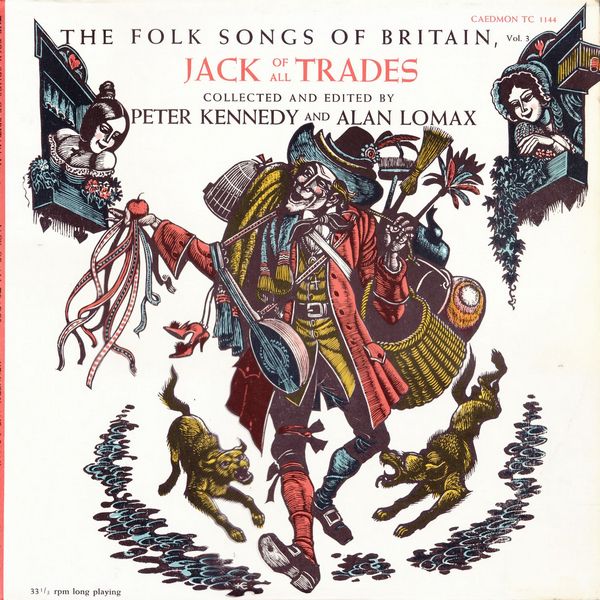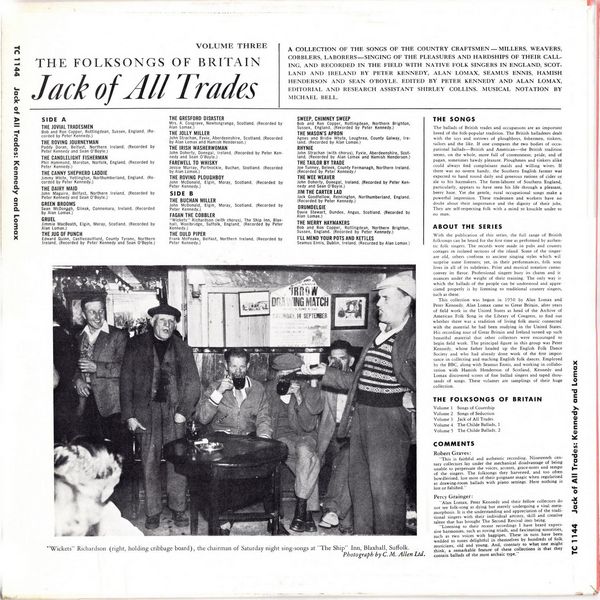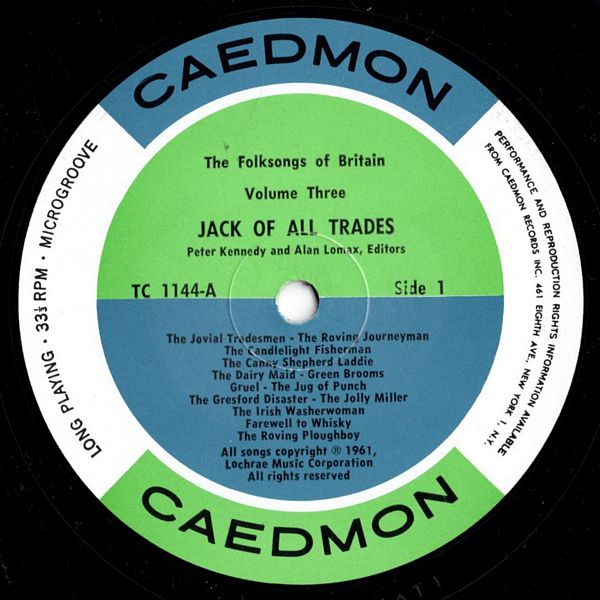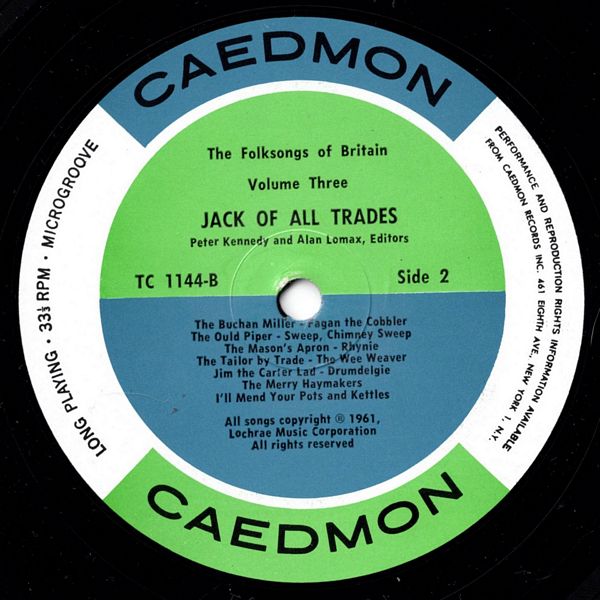

|



|
Sleeve Notes
A collection of the songs of the country craftsmen — millers weavers, cobblers, laborers — singing of the pleasures and hardships of their calling, and recorded in the field with native folk singers in England Scotland and Ireland.
THE SONGS
The ballads of British trades and occupations are an important breed of the folk-popular tradition. The British balladeers dealt with the joys and sorrows of ploughboys, fishermen, tinkers, tailors and the like. If one compares the two bodies of occupational ballads — British and American — the British tradition seems, on the whole, more full of contentment, pride, and of pagan, sometimes bawdy pleasure. Ploughmen and tinkers alike could always find complaisant maids and willing wives. If there was no cavern handy, the Southern English farmer was expected to hand round daily and generous rations of cider or ale to his haymakers. The farm-laborer of Southern England, particularly, appears to have seen his life through a pleasant, beery haze. Yet the gentle, rural occupational songs make a powerful impression. These tradesmen and workers have no doubt about their importance and the dignity of their jobs. They are self-respecting folk with a mind to knuckle under to no man.
ABOUT THE SERIES
With the publication of this series, the full range of British folk songs can be heard for the first time as performed by authentic folk singers. The records were made in pubs and country cottages in isolated sections of the island. Some of the singers are old, others conform to ancient singing styles which will surprise some listeners; yet, in their performances, folk song lives in all of its subtleties. Print and musical notation cannot convey its flavor. Professional singers bury its charm and it nuances under the weight of their training. The only way it which the ballads of the people can be understood and appreciated properly is by listening to traditional country singers, such as these.
This collection was begun in 1950 by Alan Lomax and Peter Kennedy. Alan Lomax came to Great Britain, after years of field work in the United States as head of the Archive of American Folk Song in the Library of Congress, to find out whether there was a tradition of living folk music connected with the material he had been studying in the United States. His recording tour of Great Britain and Ireland turned up such beautiful material that other collectors were encouraged to begin field work. The principal figure in this group was Peter Kennedy, whose father headed up the English Folk Dance Society and who had already done work of the first importance in collecting and teaching English folk dances. Employed by the BBC, along with Seamus Ennis, and working in collaboration with Hamish Henderson of Scotland, Kennedy and Lomax discovered scores of fine ballad singers and taped thousands of songs. These volumes are samplings of their huge collection.
COMMENTS
Robert Graves: "This faithful and authentic recording. Nineteenth century collectors lay under the mechanical disadvantage of being unable to perpetuate the voices, accents, grace-notes and tempo of the singers. The folksongs they harvested, and too often bowdlerised, lost most of their poignant magic when regularised as drawing-room ballads with piano settings. Here nothing is lost or falsified."
Percy Grainger: "Alan Lomax, Peter Kennedy and their fellow collectors do not see folk-song as dying but merely undergoing a vital metamorphosis. It is the understanding and appreciation of the traditional singers with their individual artistry, skill and creative talent that has brought The Second Revival into being.
"Listening to their recent recordings I have heard expressive harmonies, such as roving triads, and fascinating sonorities, such as two voices with bagpipes. These in turn have been wedded to tunes delightful in themselves by hundreds of folk musicians, old and young. And, contrary to what one might think, a remarkable feature of these collections is that they contain ballads of the most archaic type."